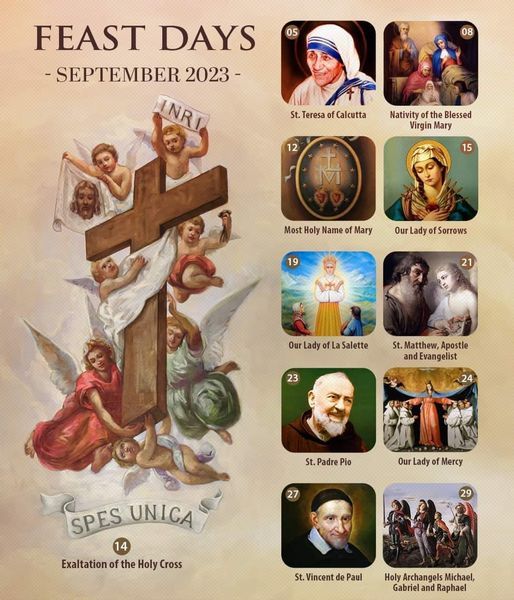One of the most controversial topics in modern Christianity, and perhaps in all of St. Paul's teachings in the New Testament, is the teaching in Ephesians on the view of Christian marriage. This is a universally puzzling teaching for Catholics and non-Catholic Christians alike, and this teaching seems to have become more controversial among modern Christian women in the wake of the feminist movement. How has St. Paul's teaching been traditionally understood, and how can we as modern Christians come to an understanding of this teaching?
Let's dive in and find out together.
"Giving thanks always for all things, in the name of our Lord Jesus Christ, to God and the Father: Being subject one to another, in the fear of Christ. Let women be subject to their husbands, as to the Lord: Because the husband is the head of the wife, as Christ is the head of the church. He is the saviour of his body. Therefore as the church is subject to Christ, so also let the wives be to their husbands in all things. Husbands, love your wives, as Christ also loved the church, and delivered himself up for it: That he might sanctify it, cleansing it by the laver of water in the word of life: That he might present it to himself a glorious church, not having spot or wrinkle, or any such thing; but that it should be holy, and without blemish. So also ought men to love their wives as their own bodies. He that loveth his wife, loveth himself. For no man ever hated his own flesh; but nourisheth and cherisheth it, as also Christ doth the church: Because we are members of his body, of his flesh, and of his bones. For this cause shall a man leave his father and mother, and shall cleave to his wife, and they shall be two in one flesh. This is a great sacrament; but I speak in Christ and in the church. Nevertheless let every one of you in particular love his wife as himself: and let the wife fear her husband." (Ephesians 5:20-33 DAR)
Misunderstandings on Mutual Subjection
Something that has been overemphasized in recent times is the first line and the idea of mutual subjection. Often this emphasis is placed on mutual subjection to relieve the perceived tension that the next line seems to place on wives, and this is not required if we step back and try to understand what is being said by St. Paul about wifely subjection. Before we look at the difficult teaching on wifely subjection though, we should try to get a proper emphasis and understanding of what St. Paul means by "Being subject one to another, in the fear of Christ." (Ephesians 5:21). Strangely enough the individuals who attempt to use this passage to circumvent the claim that wives should be subject to their husbands tend to only quote part of the verse by stating that this passage is about mutual subjection and they miss the part where St. Paul says to do this "in the fear of Christ", and whether this omission is purposeful or accidental, it leads to a misunderstanding of St. Paul's teaching on Christian marriage. The proper understanding of this passage must include the reference to the fear of the Lord, which is what provides an outer boundary to the marriage. Something that I learned early on in marriage preparation courses was the idea that when you get married sacramentally it is not simply a two way bond between husband and wife, but a three way bond between husband, wife, and God. Marriage is a reflection of the Trinity, and that is important because one of the common modern objections to the ideal of a wife being subject to her husband is that with no control over her husband it opens the door to the husband abusing his power over her, and this is why St. Paul starts this teaching by reminding both the husband and the wife that God is over and above both of them in their marriage and they should both be subject to each other before God. As we can see here a proper understanding of this verse allows for a proper framing of the verses to come, which indeed are challenging for modern ears, but as we will come to see are all put in right order under God's authority over the married couple.



















